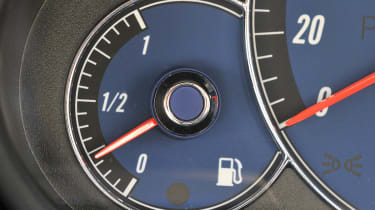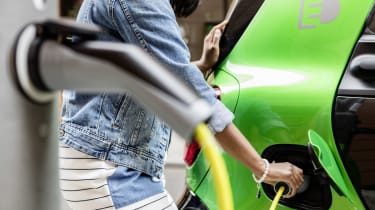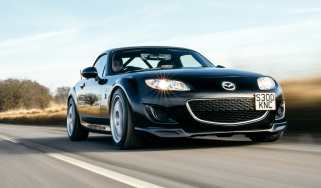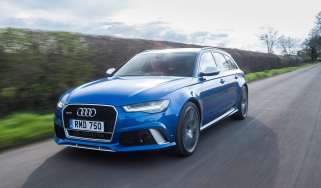"Conventionally-engined cars may be on borrowed time, but they've borrowed a good 20 years worth"
The headlines may promise an all-electric future, but read more deeply and actual Government policy is thin on the ground, says Steve Walker

On Wednesday morning we woke up to the news that the Government plans to ban the sale of all petrol and diesel cars by 2040. A tingle of dread crept its way down our collective spines. As tends to be the the case with these Whitehall proclamations, however, the devil was in the detail and, even more predictably, there wasn’t any.
Not only were early reports of blanket bans on the fuel responsible for the sounds, smells and exhilaration that keep car fans awake at night exaggerated, when the Department For Environment Food and Rural Affairs unleashed its pollution-busting masterplan, actual impactful policy was conspicuous by its absence.
Unsurprisingly, this did little to temper the mainstream media version of the story as outlets continued to tout a ‘ban on petrol and diesel’, wheeling-out experts to lay the entire blame for the UK’s NOX emissions at the door or privately-owned cars. Buses, taxis, HGVs, household boilers, construction, agriculture, manufacturing, aviation, power stations, shipping and a number of other notable sources of air pollution seemed to get off very lightly. The Government had a few days off from talking about Brexit and didn’t really have to commit to doing anything of substance to achieve it.
So where does it all leave our beloved cars? Back in the document itself, the much discussed diesel scrappage scheme was booted into the long grass with local authorities told they can run one on a local level - but central Government would probably rather if they didn’t. Meanwhile, that mooted ban on the sale of petrol and diesel cars a mere 23 years in the future proved not to include hybrids. That’s right, any car with the hybrid technology that’s widely expected to be the main means the car industry will use to meet tightening emissions regulations in the short and medium term will still be fair game post 2040.
> UK Government to ban conventional petrol and diesel car sales after 2040
No definition of ‘hybrids’ either. In its loosest sense, anything from a BMW 320d repmobile with kinetic energy recovery to charge its battery, or a Ferrari LaFerrari with a Hy-KERS system delivering an extra 161bhp right where your lap time needs it, to a BMW i3 with its optional 2-cylinder petrol generator could be termed a ‘hybrid’. Using this definition, give it 10 years and it’s not hard to imagine 90% of the cars on sale being hybrids of one sort of another.
So the Government wasn’t forcing us all into Nissan Leaf-a-likes and it had conspicuously failed to address any of the real issues that are preventing the more vigorous uptake of pure electric cars and plug-in hybrids. These would be, in no particular order, investment in battery technology to boost range and performance, investment in charging infrastructure and investment in a plentiful supply of low-emissions electricity to make the whole transition worthwhile. You might spot a recurring theme here.

The lack of cash or any real, hard policy in the announcement this week places the onus for lowering vehicle emissions back where it’s been all along anyway - on the car industry. And while it seems that purely conventionally-engined cars may be on borrowed time, they’ve borrowed a good 20 years worth and we seem more likely to see a gradual phasing out over the coming decades driven by technological advances and market forces than a big legislative axe fall.
Even then, it doesn’t mean the death knell for the kind of cars that you can fall in love with. The market is there for cars that are fun and those that push the boundaries of performance, as today’s fantastic crop of thrilling options in all price bands proves, car brands will be in no hurry to turn their backs on it.



